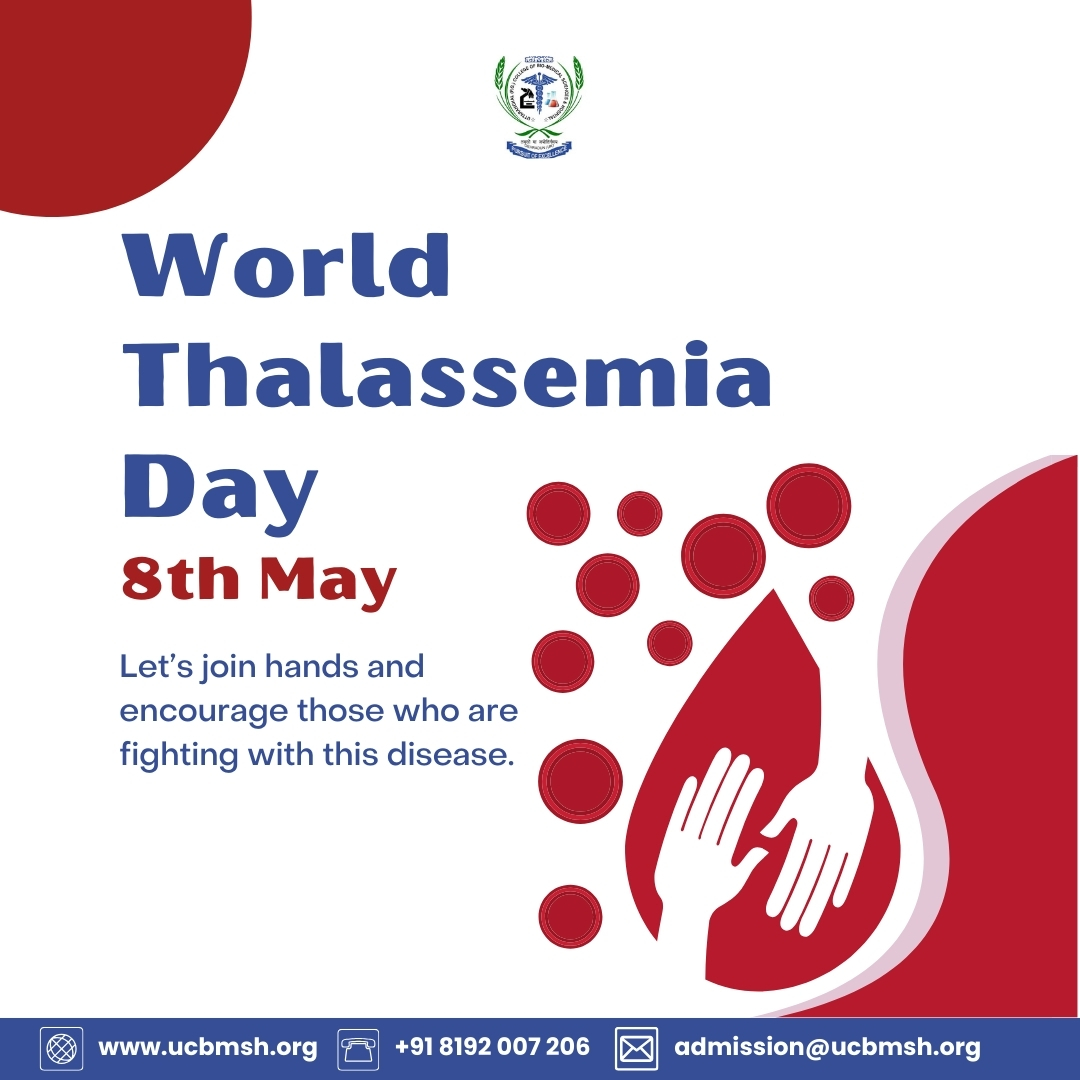

International Thalassaemia Day is observed annually on May 8th to raise awareness about thalassemia, a genetic blood disorder affecting millions worldwide. This day is dedicated to educating the public, supporting patients and their families, and advocating for better healthcare services for those affected by the disease.
What is Thalassaemia?
Thalassaemia is an inherited blood disorder that causes the body to produce abnormal hemoglobin, the protein in red blood cells that carries oxygen. The disorder leads to excessive destruction of red blood cells, resulting in anemia. There are two main types of thalassaemia: Alpha and Beta, with Beta thalassaemia being the more severe form. Individuals with severe thalassaemia require regular blood transfusions and ongoing medical care.
Impact on Patients
Thalassaemia can have a profound impact on patients’ lives. Regular blood transfusions, iron chelation therapy, and other treatments are essential for managing the disease. However, these treatments can be burdensome and costly, often leading to financial and emotional strain on families. Moreover, the disease can lead to complications such as growth retardation, bone deformities, and heart problems.
Objectives of International Thalassaemia Day
Raising Awareness
The primary goal of International Thalassaemia Day is to raise awareness about the disease among the general public, healthcare providers, and policymakers. Increased awareness can lead to better understanding, early diagnosis, and improved treatment options.
Supporting Research
This day also emphasizes the importance of research in finding a cure for thalassaemia. Ongoing research efforts focus on gene therapy, new medications, and other innovative treatments that could potentially reduce the need for regular blood transfusions and improve the quality of life for patients.
Promoting Screening and Prevention
International Thalassaemia Day promotes the importance of carrier screening and genetic counseling. Since thalassaemia is an inherited disorder, couples with a family history of the disease are encouraged to undergo screening before starting a family. Early detection through prenatal testing can help prevent the transmission of the disease to future generations.
Advocating for Better Healthcare
The day serves as a platform for advocating for improved healthcare services for thalassaemia patients. This includes access to safe and sufficient blood supplies, effective iron chelation therapy, and comprehensive care centers dedicated to managing the disease.
Supporting Patients and Families
International Thalassaemia Day provides an opportunity to show solidarity with patients and their families. Support groups, patient organizations, and healthcare providers often organize events, workshops, and campaigns to offer emotional and psychological support to those affected by the disease.
The theme for International Thalassaemia Day
Each year, International Thalassaemia Day is celebrated with a specific theme that highlights a particular aspect of the disease or its management. The theme serves to focus global attention on pressing issues related to thalassaemia, such as the need for greater awareness, advancements in treatment, or the importance of supporting research initiatives.





 Parent Handbook (246 Kb)
Parent Handbook (246 Kb)  download
download Child Care Checklist (95 KB)
Child Care Checklist (95 KB)  Agreement Form (94 KB)
Agreement Form (94 KB)  Monthly Billing Chart (95 KB)
Monthly Billing Chart (95 KB) 



